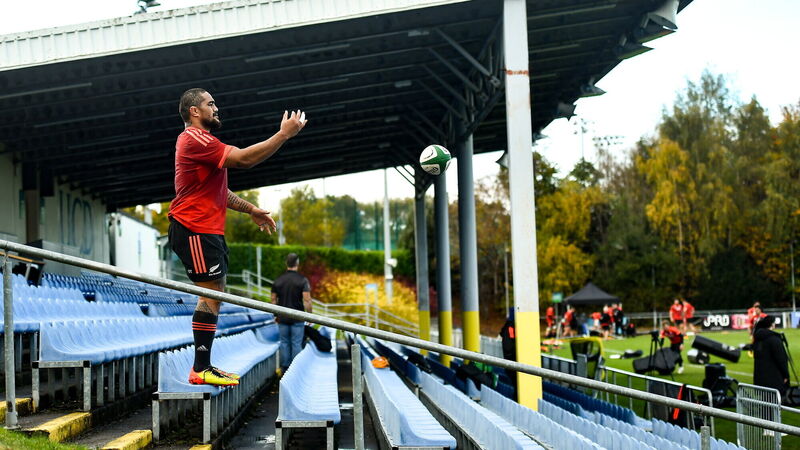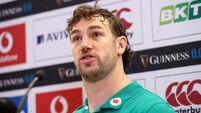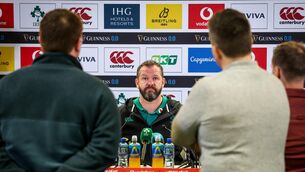Donal Lenihan: Ireland must avoid being drawn into All Blacks’ loose, unstructured game

MAKING A STAND: New Zealand’s Ofa Tuungafasi takes a novel approach to training during Tuesday’s All Blacks squad training at UCD Bowl, Dublin.
It’s all about perspective, a recognition that these autumn internationals are a means to an end, not an end in itself.
The ultimate goal is silverware, be it in the Six Nations Championship or at the World Cup. On so many occasions in the past, Irish rugby success in the November window has proved a less than reliable barometer for what lies ahead.













